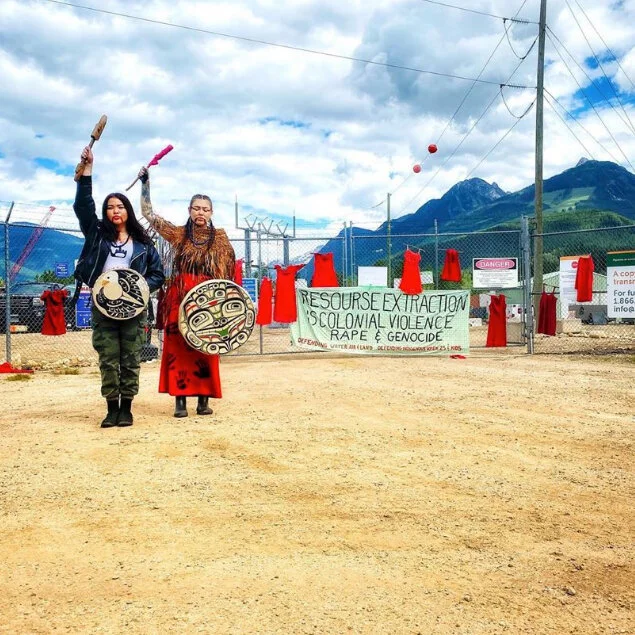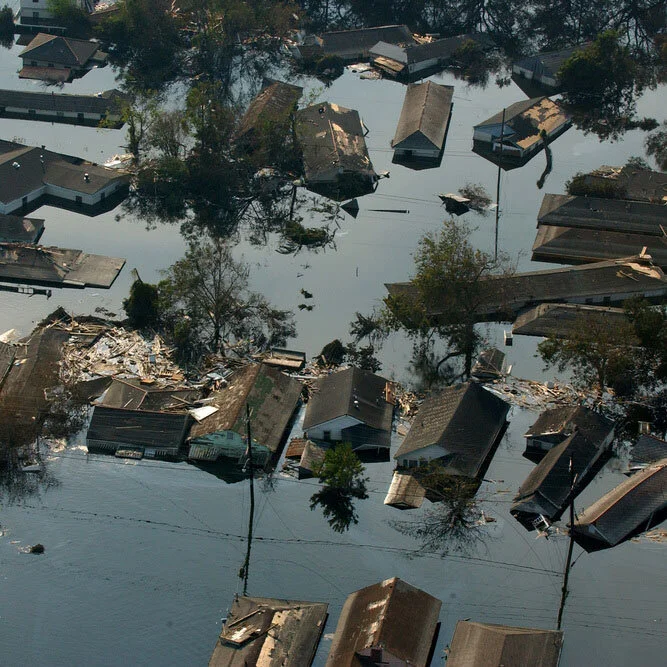Williams guides us to explore acts of the imagination as we shift into consciousness and expand our sense of family to both human and wild. As so many of us grapple with the omnipresent question of “what do we do?”, Terry provides us with salve through stories of the beauty and power of our gifts, and the living histories of the Great Basin and Colorado Plateau.
Read MoreDr. Davis explains why there is so much conflicting evidence when it comes to EMF and RF exposure, possible explanations for why colorectal cancer is increasing amongst young people, how electromagnetic radiation impacts migratory species, and what tree crowns are telling us about radio frequency radiation.
Read MoreIn this powerful conversation with land defender Sii-am Hamilton, we are invited to discuss futuristic ways forward in recognition that Indigenous communities have been practicing creative resistance against colonialism and capitalism for hundreds of years.
Read MoreCaldicott draws our attention to the realities of nuclear power reactors, proliferation and weapons, as well as the ways in which nuclearism has already wrought an unimaginable amount of havoc and trauma on our environment, culture and bodies.
Read MoreDr. Stafford has spent years listening to the sounds of climate change in the Arctic and learning how anthropogenic sounds, like ship propellers and oil and gas exploration, are changing marine mammals’ capacity to communicate.
Read MoreJoin Faith Gemmill & Princess Lucaj in conversation around the fight to protect the life giving grounds of the Alaska’s Arctic National Wildlife Refuge that has been going on for decades and will continue to do so as the first leases to drill for oil and gas could be sold by the end of 2020.
Read MoreWe discuss parenting and caring in the Anthropocene, the connection between tourism and militarism, Guåhan’s layered history and his most recent book of eco-poetry Habitat Threshold, which intimately explores ancestry, ecological collapse and the ongoing legacy of capitalism, imperialism and colonization.
Read MoreTeju discusses how gentrification originates through the calculated and supremacist devaluation of place, its environmental impacts, and urbanization and urban futures in response to climate and economic migration and changes.
Read MoreJacqui reminds us that we must strategically address the needs of our communities; when we work to uplift those at the bottom - we all rise.
Read MoreUplifting the untold story of mining, this episode braids together the history of the Gold Rush and colonization in B.C., the state of salmon, the practice of free, prior, and informed consent, dirty mining for a “clean” energy revolution, and the urgent necessity of reform.
Read MoreEriel sheds light on what Unist’ot’en Camp represents, the ongoing history of surveillance faced by frontline protectors, how policy can be a tool of forced assimilation, and the illegality of the actions taken by Canada’s federal and provincial governments.
Read MoreAyana and Kyle discuss Kyle’s body of work on dystopia and fantasy in climate justice, the reproduction of settler structures, Indigenous science, vulnerability discourses, and “decolonizing allyship.” Kyle concludes with the ever present reminder that our work must be rooted in consent, reciprocity, and trust.
Read MoreThis week we rebroadcast Pua Case’s interview in honor of the heart of a mountain and the rising of a Nation.
Read MoreIn the Northern Marianas, communities are resisting a future in which aerial bombardments become the norm, where amphibious-assault trainings sever communities from key fishing grounds and decimate aquatic ecosystems, and shelling, artillery, and mortars destroy sacred land.
Read MoreJames candidly speaks of the simultaneous beauty and horror of documenting the Anthropocene, on the complicity of industries like the arts and entertainment in contributing to fossil fuel emissions, and the importance of language and imagery in mobilizing climate momentum.
Read MoreAyana and Ada Recinos of EcoViva discuss the connections between ecosystem restoration, political and climate resilience, and food sovereignty in times of extreme instability.
Read MoreEriel articulates how narratives that surround the developments at Unist’ot’en Camp show how colonization has deeply warped our perspective on who get labeled the heroes and villains. While the state continues to prioritize the protection and expansion of infrastructure over people, we must encourage each other to see with clear vision where the true threat lies.
Read MoreSubhankar calls on us to find our connection with the Near North while clarifying many misconceptions about the current status of the Refuge and the history of extraction in Alaska. We must do these sacred grounds justice in our actions and minds.
Read MoreAyana and Heather discuss truth and reconciliation, true ally-ship, the commonality of Trump and Trudeau and reflections from Standing Rock.
Read MoreOur imaginary borders have tainted our relationship to fossil fuel complacence; global warming does not exist inside of borders, species extinction doesn’t follow state lines and blood is on all of our hands. As Nnimmo writes, “we thought it was oil, but it was blood.”
Read More





![FAITH GEMMILL & PRINCESS LUCAJ on an Arctic Untouched by Oil [ENCORE] /196](https://images.squarespace-cdn.com/content/v1/5403e5dbe4b04db10d1d362b/1597767589442-2KT0801LPXBDM4EWDGU9/Gemmill-Lucaj_For-The-Wild_Image.jpg)













